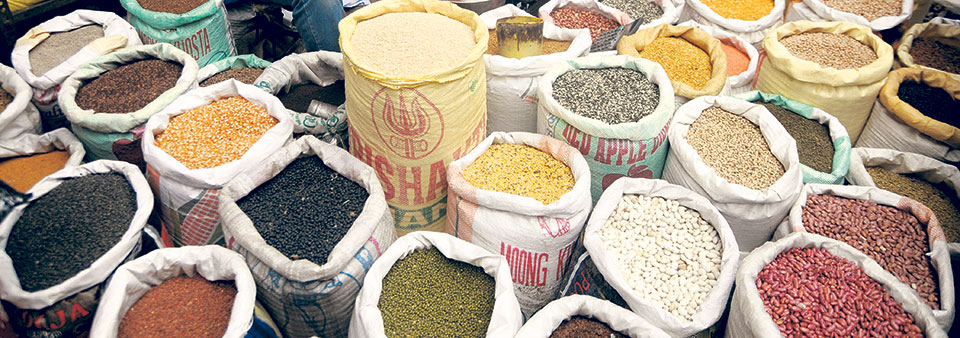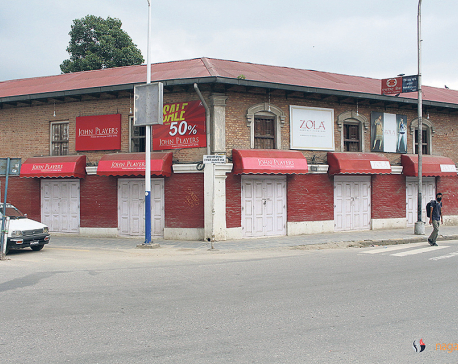
OR
Pulse prices are coming down, say traders
Published On: November 2, 2017 08:46 AM NPT By: Arpana Ale Magar

KATHMANDU, Nov 2: Price of pulses and beans is expected to down in the coming days, trader say. Officials of Nepal Retailers Association told Republica that as India recorded bumper harvest of different varieties of pulses, beans and legumes and price is going down in the southern neighbor.
“As India is the major supplier of pulses, beans and legumes to Nepal, price is expected to come down here as well,” Pabitra Bajracharya, president of the association, said. “We are taking time to place fresh import orders as our suppliers in India have told us that prices are expected to come down very soon.”
Currently, black gram, split green gram, red lentil, skinned green gram, split red gram and Bengal gram is selling for Rs 160, Rs 140, Rs 130, Rs 130, Rs 150, Rs 240 and Rs 160 per kg, respectively, in the Nepali market.
Similarly, price of black soybean is Rs 120 per kg, white soybean is Rs 100 and white peas is Rs 70 per kg, while green peas, chickpea, kidney bean and black-eyed bean are available at Rs 70, Rs 220, Rs 160 and Rs 140 per kg, respectively.
According to Reuters, production of pulses increased by 40 percent in 2016/17 compared to a year ago. In Fiscal Year 2015/16, India had produced 16.47 million tons of pulses compared to annual demand of 22 million tons. To address the deficit, the government had announced various programs to make India self-sufficient in pulses by 2020. This government programs made immediate impact, resulting to healthy growth in production.
Rise in production has caused the price of pulses to fall down in the Indian market. According to data compiled by India's Ministry of Commerce and Industry, price of split black gram fell to IRs 137.17 per kg in 2016, down from IRs 142.64 a year ago. Similarly, prices of split green gram and red lentils have dropped to IRs 102 from IRs 107 and IRs 80 from IRs 87 per kg, respectively.
“India has provided attractive incentives to farmers to boost production of lentils. This encouraged more farmers to start cultivation of pulses which resulted to increment in pulses production. It ultimately impacted price in the India market,” Bajracharya added. “Sooner or later, price will fall in Nepal which imports pulses from India.”
Bajracharya further said wholesalers still have pulses in stock. “Once they make fresh imports, prices will come down,” he added.
You May Like This

“You are not alone; millions are behind you,” Deuba to Dr KC
KATHMANDU, July 20: Former Prime Minister and Nepali Congress President Sher Bahadur Deuba has urged the government to immediately hold... Read More...

Durbar Marg traders shut down stores to protest govt monitoring
KATHMANDU, Sept 8: Traders have shut down their businesses in Durbar Marg for an ‘indefinite period’ to protest the government’s raid... Read More...

Oil prices down sharply ahead of OPEC announcement
LONDON, May 25: Oil prices were volatile but trading sharply lower Thursday ahead of an expected announcement from the OPEC oil... Read More...











Just In
- Nepal at high risk of Chandipura virus
- Japanese envoy calls on Minister Bhattarai, discusses further enhancing exchange through education between Japan and Nepal
- Heavy rainfall likely in Bagmati and Sudurpaschim provinces
- Bangladesh protest leaders taken from hospital by police
- Challenges Confronting the New Coalition
- NRB introduces cautiously flexible measures to address ongoing slowdown in various economic sectors
- Forced Covid-19 cremations: is it too late for redemption?
- NRB to provide collateral-free loans to foreign employment seekers







Leave A Comment